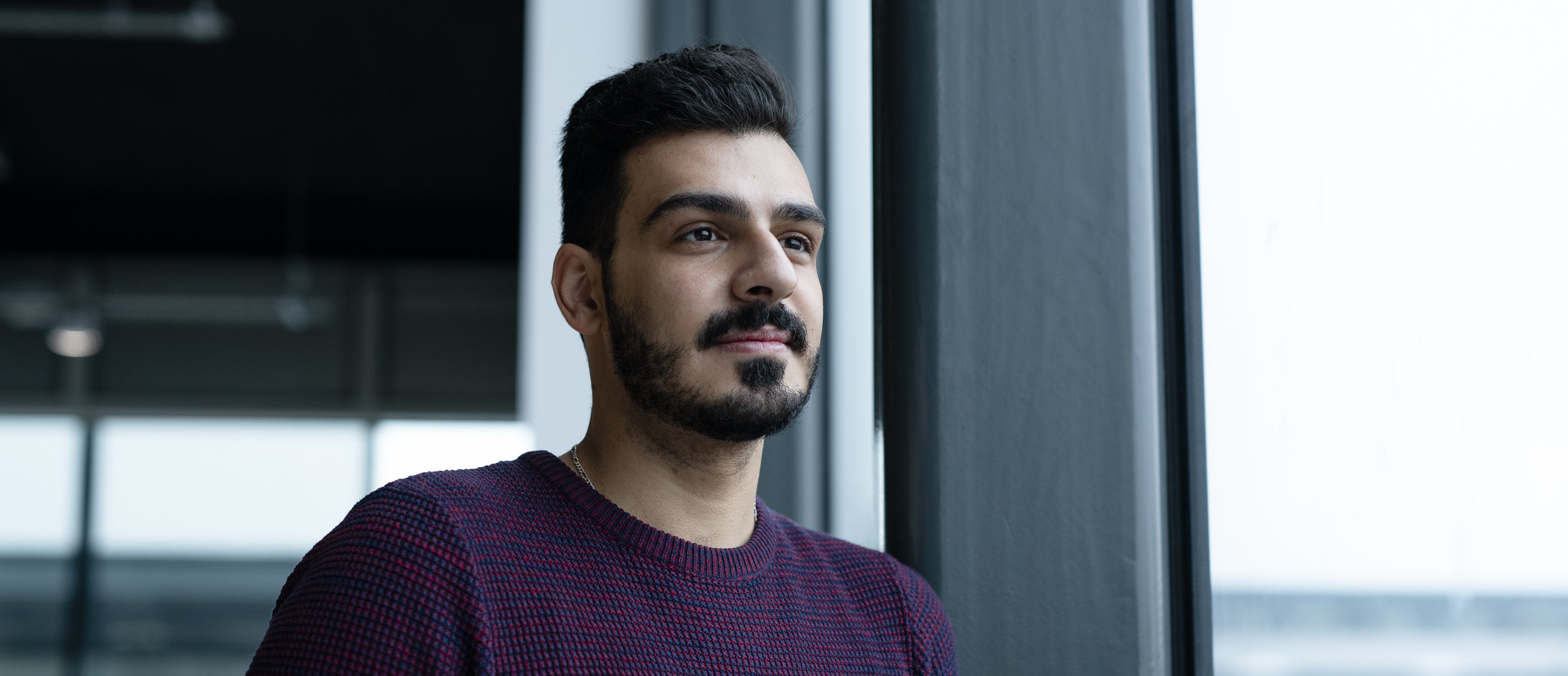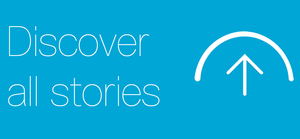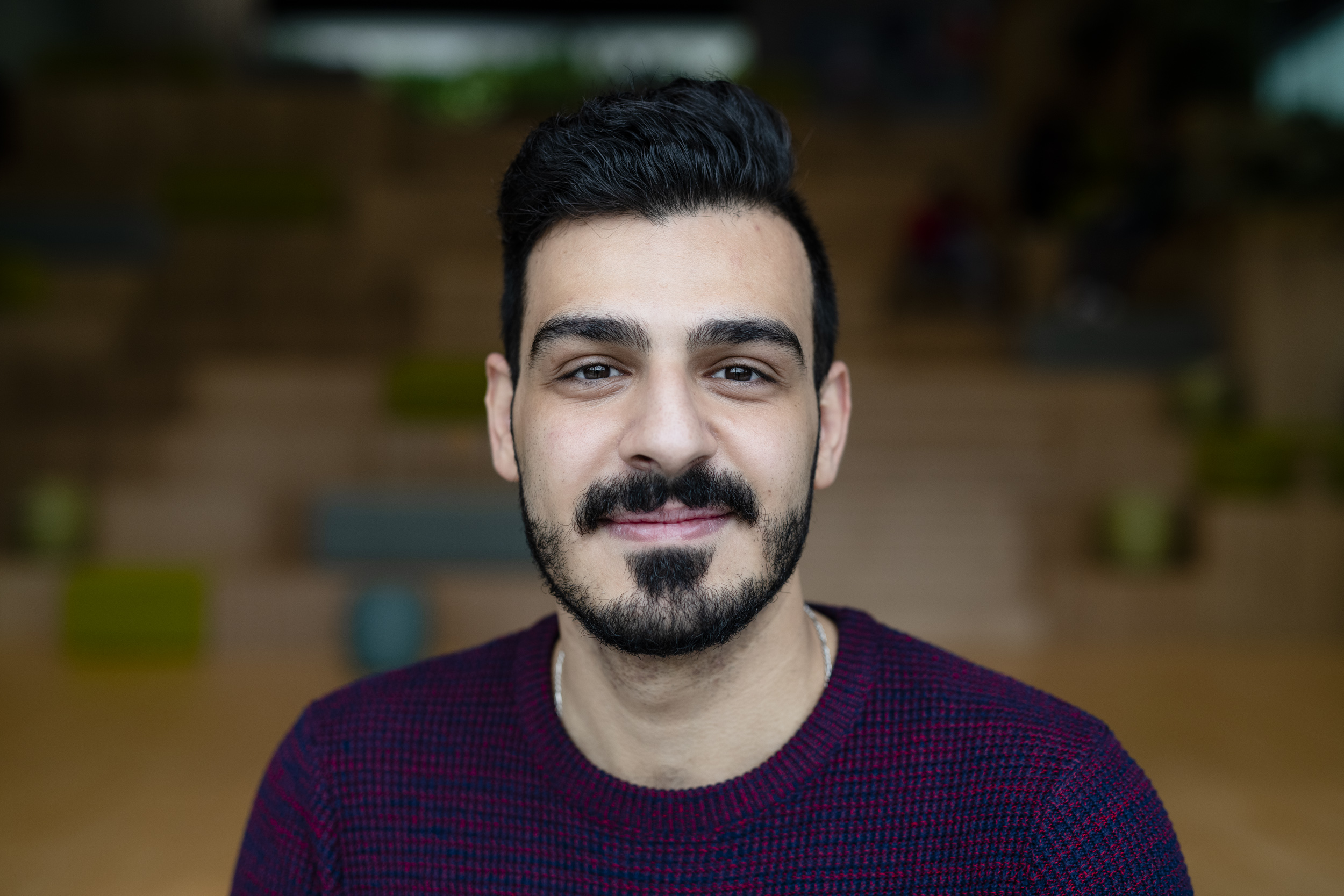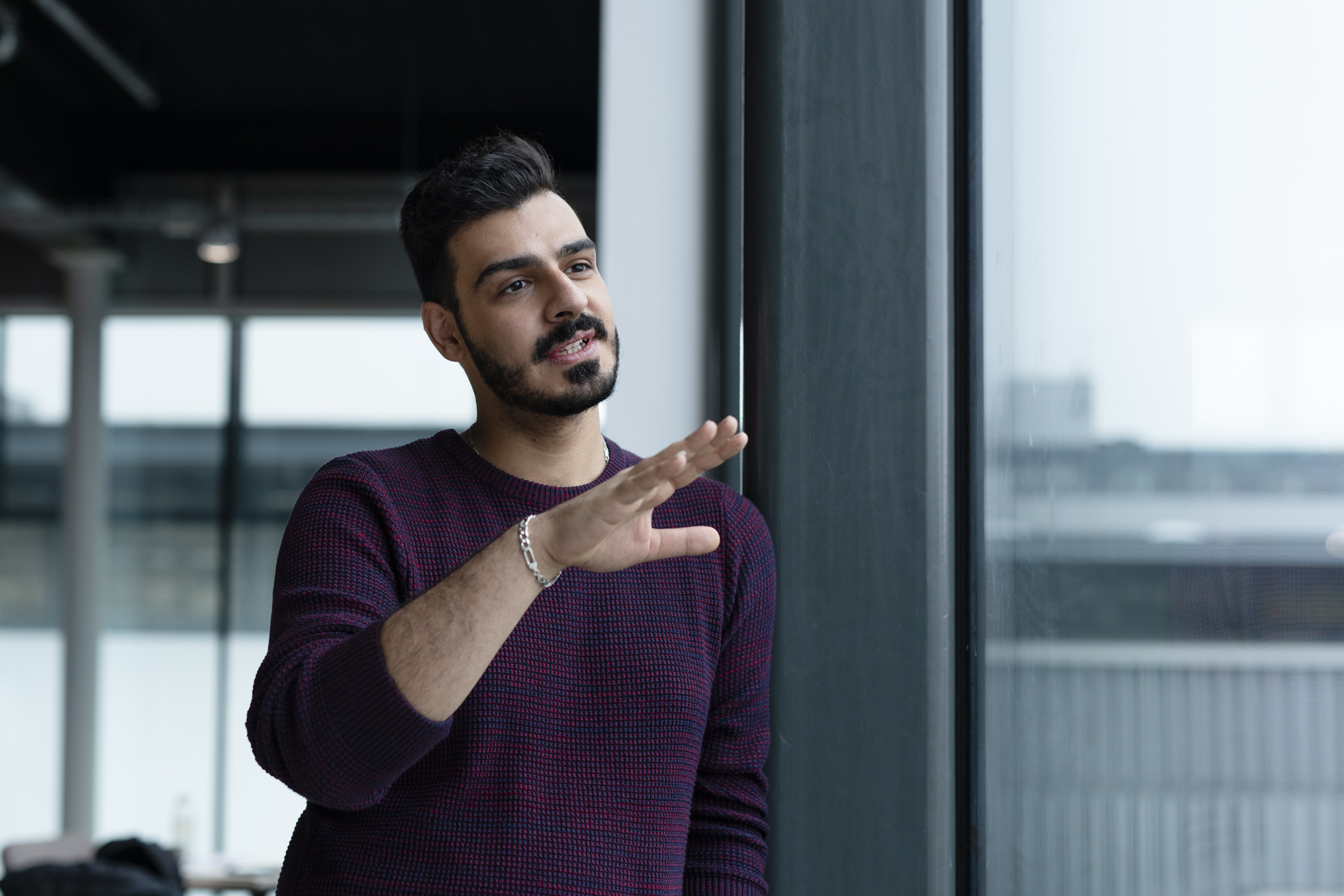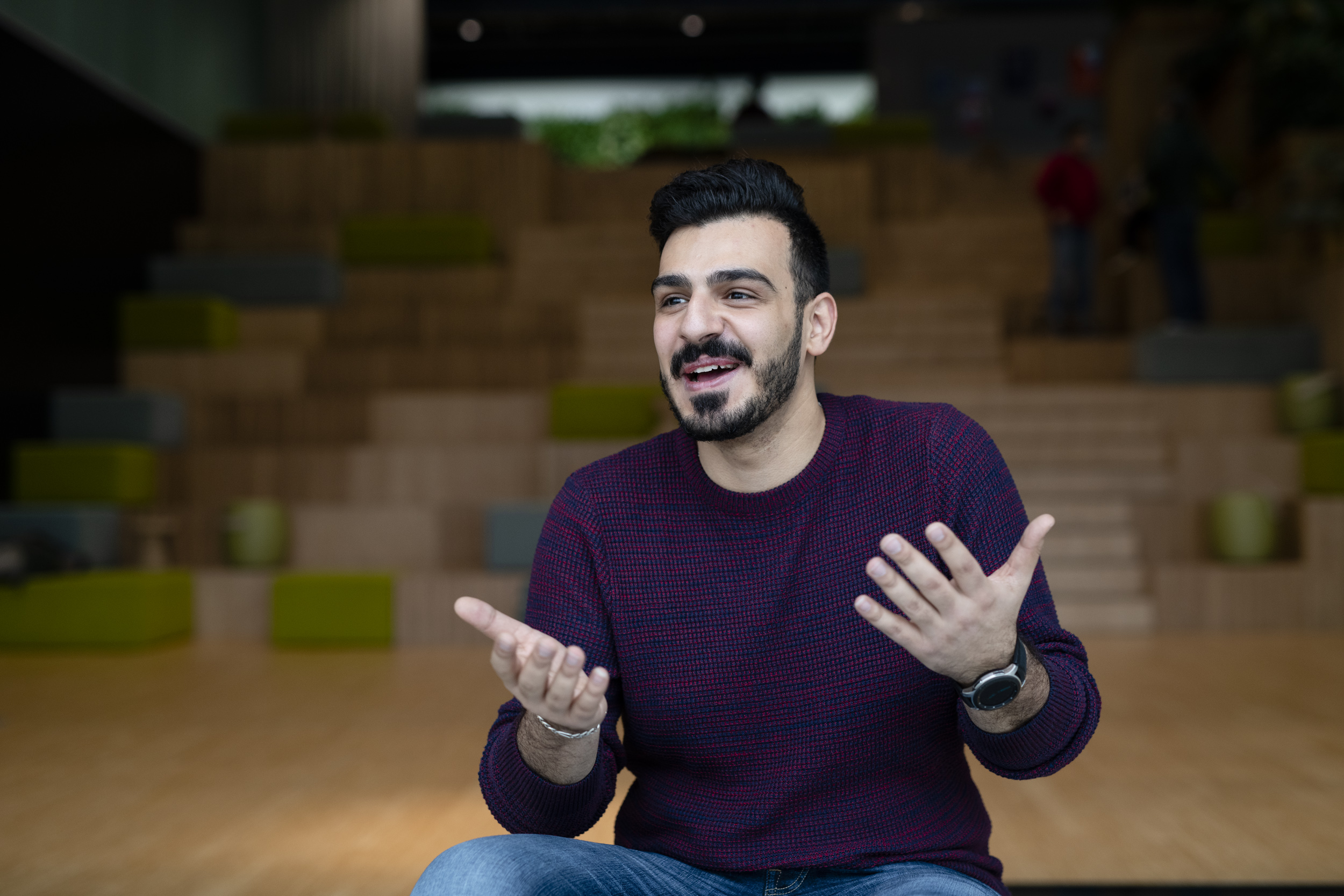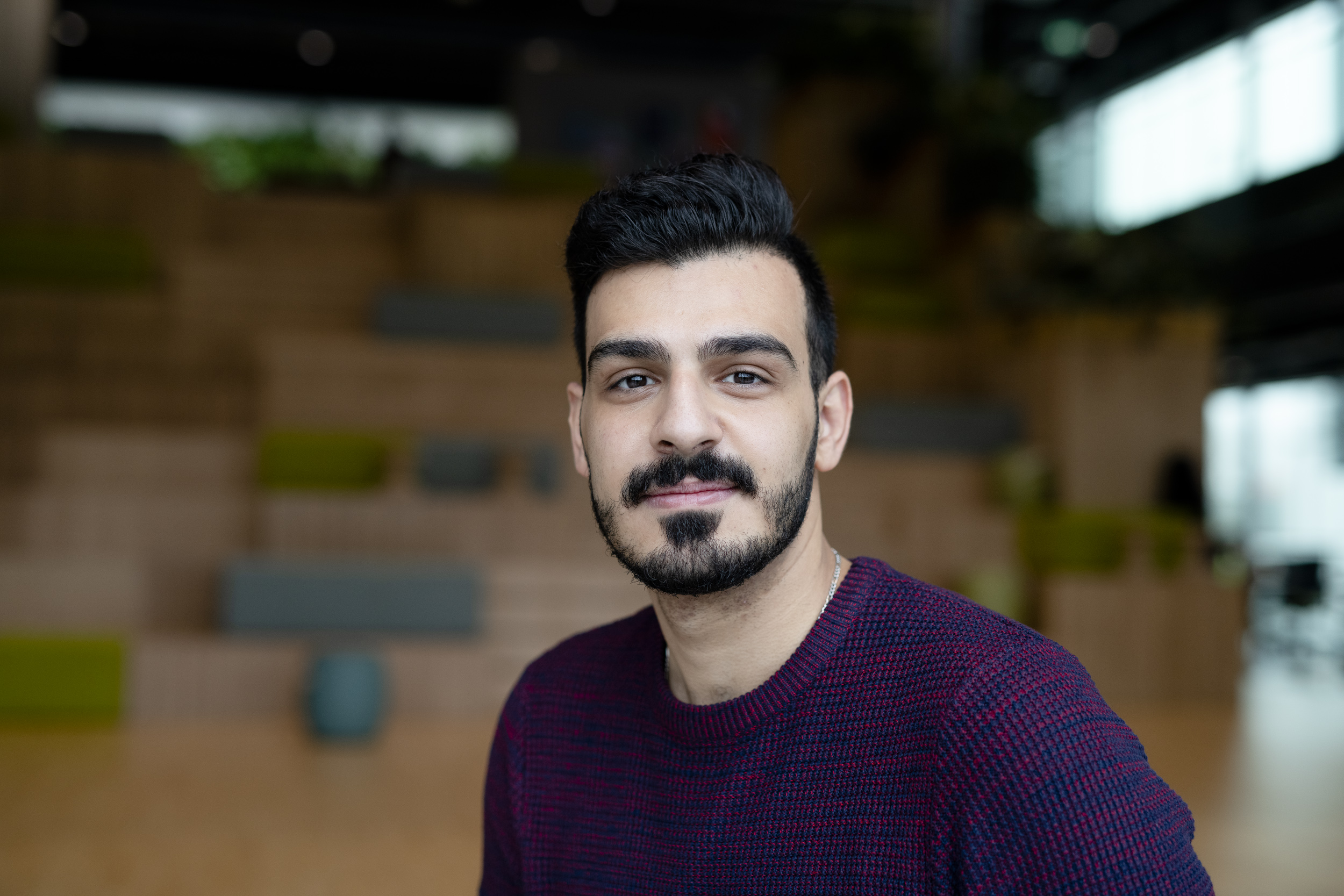Nima Salami
Digitization and storage of health records using blockchain
If ever there is a story about overcoming tremendous odds to succeed, it is Nima Salami’s. A refugee from Iran, he was inspired to create a secure online platform to give ownership of medical records back to the people, after his mother’s records were lost when they fled religious persecution. Thus, was born OASYS, a startup which is currently being validated at YES!Delft and which was the subject of his talk at TEDxDelft 2019. Nima is also working for Wavyr, a company developing conversational AI for customer interactions, is a member of the TU Delft Student Council via Lijst Beta, and is pursuing a BSc in Computer Science at the same time. He agrees to let me question him in the library to find out what makes him tick!
Text by Vishal Onkhar and images by Marieke Odekerken
Nima’s tale is one that is intertwined with faith. Born in 1993 in Tehran, Iran, he and his family were forced to seek asylum in Malaysia when he was only 17 due to political instability, violence, and persecution for choosing not to be devout Muslims and resisting Sharia. Avowed atheists on their arrival in Malaysia, they slowly found themselves drawn towards Christianity. Little did they know that their faith (or lack thereof) would once again lead to their facing discrimination. After being denied permission by the government to attend college, Nima worked for 3 years before seeking asylum yet again in the Netherlands due to escalations in religiously motivated violence in Malaysia. Living for months with his family in a refugee camp in the Netherlands, Nima applied to TU Delft and got accepted, which enabled him to move to Delft in the hope of a brighter future.
Project
I sit in awe as I hear his story and switch subjects to the lighter topic of OASYS, his online platform for medical records. “Many countries and hospitals don’t keep proper records of patients’ health and medical histories because they just don’t have the technology”, he informs me, “and there are problems in the transfer of this data when visiting a different hospital or moving abroad”. Apparently, medical records are often written only on paper and any digital data is stored locally. “The General Data Protection Regulation (GDPR) in the EU entitles people to full control over their personal data”, he says matter-of-factly, “so I came up with the idea of OASYS as a service, a website/portal, an online database and a mobile application to securely store this data in a way that it is owned solely by the patient and can easily be accessed and selectively be shared”. Nima goes on to explain that the usual modes of medical data transfer like CDs, USBs, fax or email are unsafe compared to the solution OASYS offers.
When I inquire as to the seriousness of the problem, Nima says that many people worldwide die due to a lack of access to their medical data. He says that they often need to be re-diagnosed which takes time and could cost them their life since they’re not medicated in the interim. Sometimes, patients are even given the wrong medication due to a lack of knowledge of their unique medical circumstances or allergies. He says he interviewed several patients, doctors and people working in the health industry to assess the gravity of the situation and realized that the number of deaths is high but impossible to pinpoint, since the cause of death is always listed as a disease and never attributed to unavailability of medical records. Hence, an application to record, store and access this data is the need of the hour. On this venture with him are doctors, engineers and experts in fields of science, policy, software and business from the Netherlands and other parts of the world. It is indeed commendable how despite the many hurdles in his life, Nima sees opportunity where others would only see misfortune!
Regarding future plans with OASYS, Nima says he will first focus on data security and then move on to the user interface. While he acknowledges that countries outside the EU have a greater need for an online medical database, conducive laws and availability of capital mean he will launch his product first in the EU to help citizens and immigrants here before moving on to Asia, Africa and the Americas. “The end goal is to make using OASYS a regular part of life, like checking a popular app on a smartphone, and I hope to achieve this within the next decade!” he exclaims confidently.
Challenges and learning
Nima tells me a common pitfall is getting overly attached to one’s ideas, making it very difficult to change one’s views. In order to avoid this, he says it’s essential to work with the opinions and suggestions of others from the beginning. He adds that this also helps one handle issues in areas where one has little to no experience. Nima tells me the secret to convincing an audience is to explain concepts in the simplest and shortest way possible, a technique which I saw in action during his TEDx talk.
Hobbies and extracurriculars
Nima says he has little time for leisure activities, although he likes to sneak a few hours to play basketball every month. He is a Christian and attends church on Sundays. His ultimate goal in life, he says, is “to leave the world a better place than when he entered it” by doing small acts of kindness every day and trying his best to make a positive impact to the world, no matter how small. As part of this belief, he is the vice-chair of Lijst Beta and a member of the Central Student Council of TU Delft, acting as a voice for internationals and minorities. In the startup Wavyr, he devotes his time to improving the company’s AI solutions for customers. He also loves to travel the world, when he can find time for it.
Life in NL
I gingerly broach the subject of comparing life in the Netherlands to abroad. Nima says it is good to be able to breathe free again, and that he finally feels at home now. He is glad that the Dutch are very friendly and tolerant, which makes it easy to integrate into society even if you don’t speak the language fluently. “There is absolutely no way I can return to Iran, given the current situation”, he says with a grim face.
Conclusion
I walk away from that interview humbled and grateful for my fortunate circumstances. Truly, Nima’s story is nothing short of a testament to human perseverance, survival despite stacked odds, and an indomitable fighting spirit.

